Approved
by order of MES RK
dated January 8, 2016 No. 9
Rules of Teaching Ethics
1. General Provisions
1. These Rules of Pedagogical Ethics (hereinafter referred to as the Rules) are developed in accordance with the provisions of the Constitution of the Republic of Kazakhstan, the Law of the Republic of Kazakhstan of July 27, 2007 on Education, the Labor Code of the Republic of Kazakhstan of November 23, 2015, the Law of the Republic of Kazakhstan of November 18, 2015 the goal "On Combating Corruption", and also based on generally accepted moral principles and norms of the Republic of Kazakhstan.
2. The rules are a set of general principles and norms of pedagogical ethics that guide the teaching staff of educational organizations.
3. Knowledge and observance of the provisions of the Rules by pedagogical workers is one of the criteria for assessing the quality of their professional activities and labor discipline.
4. The text of the Rules of Pedagogical Ethics is placed in an accessible place for participants in the educational process.
2. Basic principles of pedagogical ethics
5. The main principles of pedagogical ethics are:
1) conscientiousness: the conscientiousness of the teacher implies his responsibility for the result of training and education, the ability to make adjustments in their activities, developed ability to criticize and reflect, openness to any opinions of students, parents, colleagues;
2) honesty: the honesty of the teacher implies the openness of his assessment activities, the transparency of the educational environment created by him. Honesty forbids the teacher to violate the rights of the student, his parents (legal representatives), colleagues;
3) respect for the honor and dignity of the individual: The teacher respects the honor and dignity of the student, parent, people who become the objects of his professional attention, tactful in dealing with them. He sincerely wishes the development of the child, shows readiness to always come to his aid, delicacy in assessing the success (failure) of the student. The use of methods of physical, moral and mental violence against the participants of the educational process is not allowed;
4) respect for universal human values: recognizing the priority of universal human values, the teacher respects the characteristics, values and dignity of each national culture. The teacher educates the culture of interethnic relations, awakens in students respect for the rights and dignity of all nations and all people regardless of age, gender, language, nationality, religion, citizenship, origin, social, official and property status or any other circumstances; The teacher contributes to creating a climate of trust and respect in the school community;
5) professional solidarity: the teacher cares about the prestige of the profession, respects the honor and dignity of colleagues, does not allow actions detrimental to the authority of the teacher. It is not allowed in any form, abuse the trust of their colleagues, prevent them from fulfilling their professional duties, cause them or damage. The teacher assists colleagues in improving the level of theoretical and methodological skills in the development of creative abilities, comes to the aid of colleagues who are in trouble. Professional solidarity cannot serve as a justification for falsehood and injustice;
6) the continuity of professional development. The teacher improves his professional skills, intellectual, creative and general scientific level.
3. Basic norms of pedagogical ethics
6. In their activities, teaching staff:
1) contribute to the education of students and pupils in the spirit of high morality, respect for parents, ethnocultural values, respect for the world around them;
2) do not allow the accomplishment of actions capable of discrediting the high title of a pedagogical employee of the Republic of Kazakhstan;
3) conscientiously and efficiently perform their duties;
4) continuously improve their professional skills, are actively engaged in self-education and self-improvement;
5) strictly observe labor discipline;
6) carefully treat the property of the educational organization and do not use it for personal purposes;
7) take measures to prevent corruption; by their personal behavior they set an example of honesty, impartiality and justice;
8) do not allow the use of proprietary information for selfish and other personal purposes;
9) by personal example they contribute to the creation of a stable and positive moral and psychological situation in the team;
10) adhere to the business style of clothing in the period of execution of their official duties.
7. In relations with the participants of the educational process, teaching staff:
1) respect the rights, honor and dignity of a person, regardless of age, gender, nationality, religion, citizenship, origin, social, official or financial status or any other circumstances;
2) do not allow the facts of financial and other extortion in relation to the participants of the educational process, make efforts to prevent such actions by their colleagues;
3) by their actions do not give reason for justified criticism from society, tolerate it, use constructive criticism to eliminate shortcomings and improve their professional activities;
4) provide professional support to participants in the educational process.
8. In relations with colleagues, teaching staff:
1) comply with generally accepted moral and ethical standards, to be polite and correct.


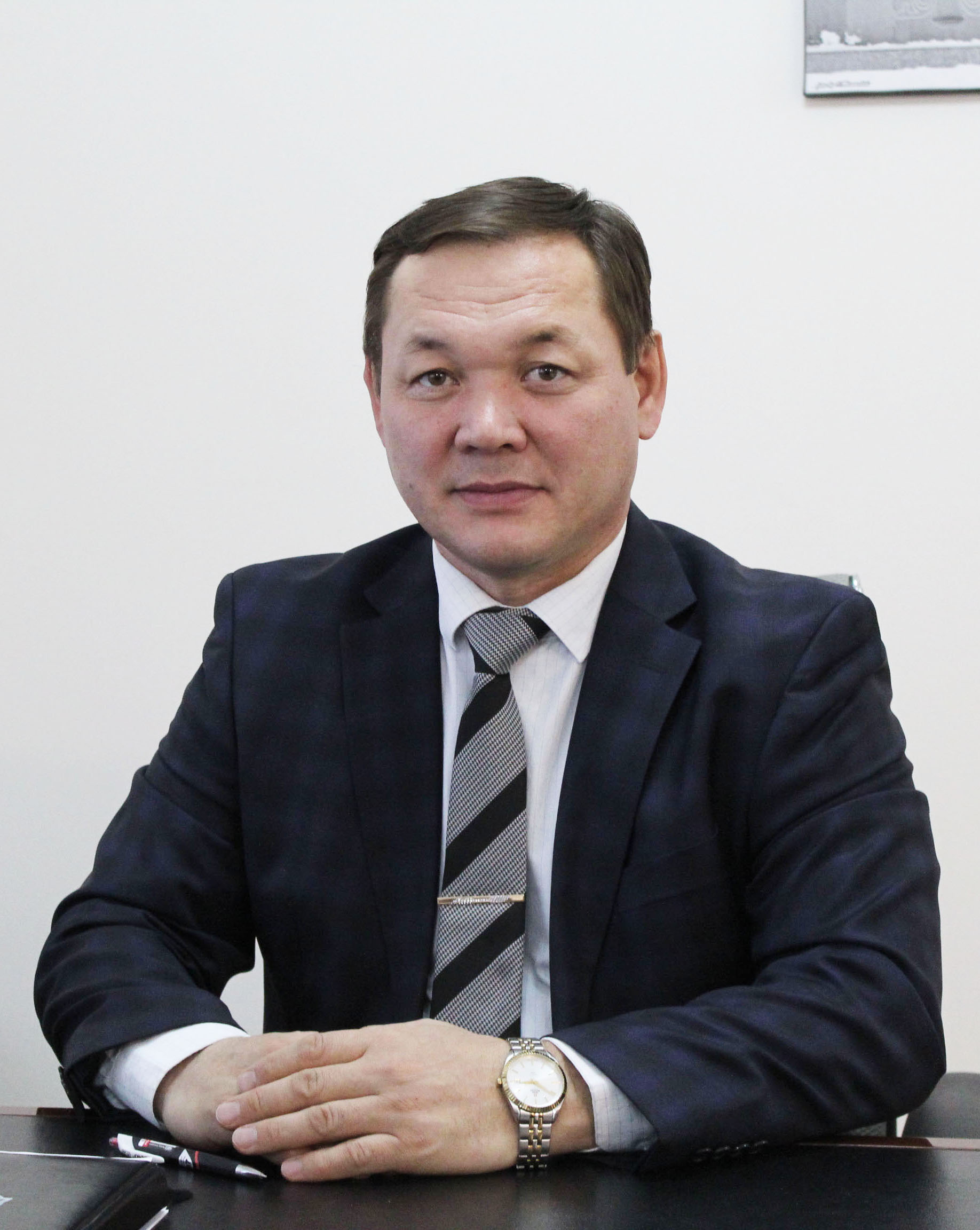
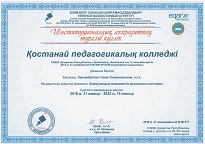
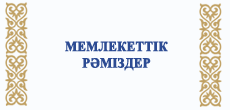
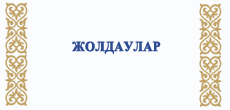






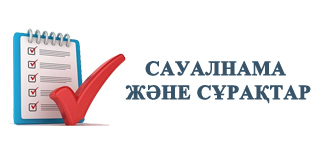
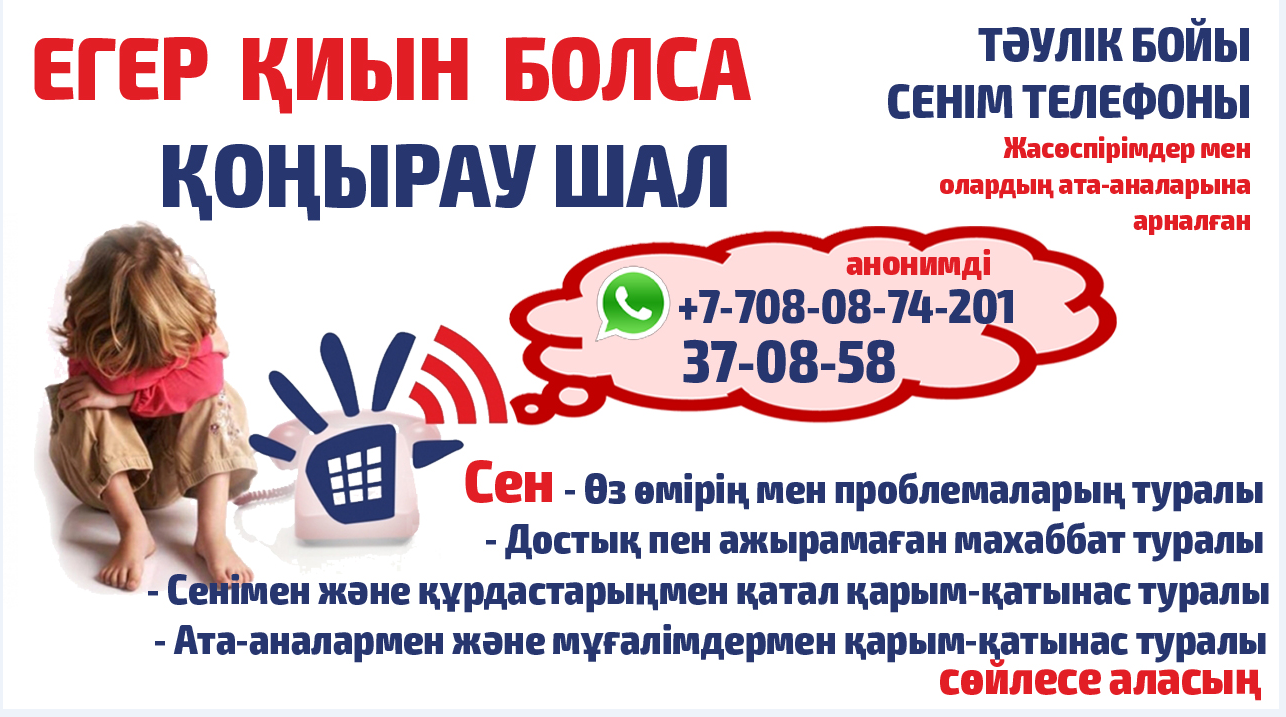












 Қостанай Жоғары педагогикалық колледжі Абай Құнанбайұлы челлендж
Қостанай Жоғары педагогикалық колледжі Абай Құнанбайұлы челлендж Жасөспірімдерді қауіпті ойындарға тартудың алдын алу бойынша мұғалімдер мен ата-аналарға арналған ж.
Жасөспірімдерді қауіпті ойындарға тартудың алдын алу бойынша мұғалімдер мен ата-аналарға арналған ж. Отчет директора КГКП «Костанайский педагогический колледж» за 2021-2022 учебный год
Отчет директора КГКП «Костанайский педагогический колледж» за 2021-2022 учебный год Отчет директора КГКП «Костанайский педагогический колледж» Управления образования акимата Костанайской области
Отчет директора КГКП «Костанайский педагогический колледж» Управления образования акимата Костанайской области Я выбираю Костанайский педагогический колледж!
Я выбираю Костанайский педагогический колледж! Мен Қостанай педагогикалық колледжін таңдаймын!
Мен Қостанай педагогикалық колледжін таңдаймын! "ПАМЯТЬ В СЕРДЦАХ ХРАНИМ" ПРАЗДНИЧНЫЙ КОНЦЕРТ| ДЕНЬ ПОБЕДЫ!
"ПАМЯТЬ В СЕРДЦАХ ХРАНИМ" ПРАЗДНИЧНЫЙ КОНЦЕРТ| ДЕНЬ ПОБЕДЫ! Помним и гордимся
Помним и гордимся Виртуальная выставка к 75 летию Победы в Великой Отечественной войне
Виртуальная выставка к 75 летию Победы в Великой Отечественной войне Мен қашықтан оқытамын
Мен қашықтан оқытамын Я обучаю дистанционно
Я обучаю дистанционно "Вместе мы - команда" дистанционное обучение в колледже
"Вместе мы - команда" дистанционное обучение в колледже Встреча российской молодежи на Казахстанско-российский форум молодежи
Встреча российской молодежи на Казахстанско-российский форум молодежи Чемпионат по методике WorldSkills стартовал в Костанайском педагогическом колледже
Чемпионат по методике WorldSkills стартовал в Костанайском педагогическом колледже Единый подход к информатизации ТиПО
Единый подход к информатизации ТиПО Жастар лебізі
Жастар лебізі Автору проекта "Самопознание" посвящается...
Автору проекта "Самопознание" посвящается... Казакстанда жастар жылы!
Казакстанда жастар жылы! Қазақстандағы Жастар жылы
Қазақстандағы Жастар жылы С ЮБИЛЕЕМ РОДНОЙ КОЛЛЕДЖ СПЕЦИАЛЬНЫЙ РЕПОРТАЖ
С ЮБИЛЕЕМ РОДНОЙ КОЛЛЕДЖ СПЕЦИАЛЬНЫЙ РЕПОРТАЖ Қоғамдық бейнебаян "Мен сені сүйемін..."
Қоғамдық бейнебаян "Мен сені сүйемін..." Отчет директора по итогам 2017-2018 учебного года
Отчет директора по итогам 2017-2018 учебного года Сәлем! Абитуриент!
Сәлем! Абитуриент! "Астана в моем сердце..."
"Астана в моем сердце..." Стихотворение "Астана в моем сердце..."
Стихотворение "Астана в моем сердце..." "Инструктивно-лагерные сборы-2018". 3 отряд
"Инструктивно-лагерные сборы-2018". 3 отряд "Инструктивно-лагерные сборы-2018". Отряд 2
"Инструктивно-лагерные сборы-2018". Отряд 2 LIFE репортаж КВН лига ПРОФСОЮЗОВ 1/4
LIFE репортаж КВН лига ПРОФСОЮЗОВ 1/4 Кружковая работа в колледже
Кружковая работа в колледже Костанайский педагогический колледж для абитуриента
Костанайский педагогический колледж для абитуриента Последний звонок, долгожданный звонок…
Последний звонок, долгожданный звонок… «Солдатам Победного мая», Жакаева Кунсулу и хор КПК - "Верните Память"
«Солдатам Победного мая», Жакаева Кунсулу и хор КПК - "Верните Память" «Солдатам Победного мая», ансамбль "Новое поколение"- Тёмная ночь
«Солдатам Победного мая», ансамбль "Новое поколение"- Тёмная ночь Конкурс «Колледжвидение-2018»
Конкурс «Колледжвидение-2018» Видеолекция на тему: "Использование ИКТ в учебном процессе ТиПО в контексте новых подходов в обучении и преподавании"
Видеолекция на тему: "Использование ИКТ в учебном процессе ТиПО в контексте новых подходов в обучении и преподавании"